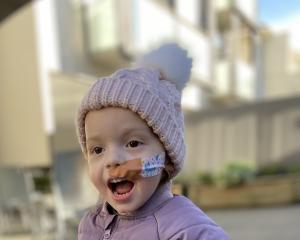
Q Why are you in Hampden?
I decided to go deep south and fully embrace the winter. I was able to find this house-sit in Hampden and I have friends in the area.
Q What was your role in the rebuild of Christchurch post-earthquakes?
I was one of the people who set up that project All Right?
All Right? was designed to support Cantabrians and improve their mental health and wellbeing as the region rebuilt after the earthquakes.
[It] just looked at how we were going to be dealing with everything that came out of the quakes.
Q Are you a trained lawyer?
I’ve got a law degree (hons), [but] I just got to the point where I didn’t want to be a practising lawyer.
One of the things I’m thinking about over the next couple of years is doing postgraduate study.
[I am] looking into what is the position of the law because people are rejecting it in some ways and sometimes quite rightly.
Q Where did you grow up?
England. I grew up in the middle, Leamington Spa, about as middle of England as is possible.
Q Do you think the community cares about social justice any more?
I think yes but I don’t think people necessarily explicitly think they do but they do.
Like the earthquakes, that’s the example, nobody cares about the environment and justice until they’re marginalised or injured.
Nobody cares about health until they’re ill.
If people’s lives are comfortable, where’s the hook for them to care about social justice?
If you ask people about social justice they’ll say ‘no I don’t talk about that sort of stuff’ but if you ask them how they would like to be treated, or what they think is important, or if they’ve ever experienced poor treatment they’ll tell you a story.
Q What are the social justice issues in Waitaki?
Water quality is one of the big issues around here and water take.
It’s too easy to fall into ‘all dairy farmers are scum and we should hate them’ but there are real issues around consents in this district.
Generally speaking, there’s this widening gap between rich and poor and when you’re a community like this people are going to be impacted by that.
A lot of farmers are crippled by debt.
Q What role does protesting still have in 2016 in fighting for social justice issues?
I’ve never been a protester.
I’ve had loads of friends who are real placard-waving and tub-thumping friends.
I think there are different ways to protest.
There violent protests and non-violent protests.
I’m a velvet monkey wrench — I don’t fight fire with putting more fire on it.
Q What do you think communities should have?
If you build a strong community when something happens you’ve already got the skills to draw on.
You don’t have to chase your tail after the fact.














